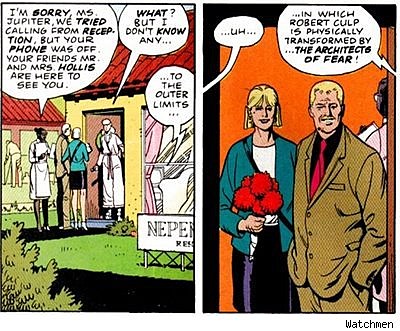…in 2019!
The article, by Nick Douglas and which is found over on lifehacker.com, offers a…
List of 1923 Copyrighted Works that enter into public domain in 2019
These include songs, books, movies, and even works of art. It’s an intriguing list and it does bring up, at least for me, the issue of copyright in general.
As an author, I feel copyright is a very important tool to protect one’s works (duh) from being appropriated by others. I would certainly go ballistic if someone comes up, without my authorization, stories set in my Corrosive Knights universe and subsequently released them. If it’s “fan fiction” and posted where anyone/everyone can read them, I don’t mind.
But if a conscious attempt has been made to create something for sale/profit, then that crosses a line. I created the Corrosive Knights “universe” and the characters that inhabit them. I feel I should have the ultimate say, as long as I live, to what becomes of them.
However, issues regarding copyright aren’t always so clear cut.
Years ago and way, waaaaay back in the 1980’s I was an early fan of the brilliant writing of Alan Moore. For those who don’t know who he is, Alan Moore is considered, even today, one of the best comic book writers there ever was. Among the works he wrote, several made it to film: V for Vendetta, Watchmen, League of Extraordinary Gentlemen, From Hell.
Most of his very best works appeared in DC Comics, including Watchmen, Swamp Thing, and V for Vendetta. In the case of V for Vendetta, the initial stories were serialized in a British comic book magazine called Warrior but after the magazine folded it appeared the work, which hadn’t reached its conclusion, would never be finished. DC Comics picked it up and Mr. Moore, along with original artist David Lloyd, were able to finish the series and get the full story released through DC.
Mr. Moore had a big falling out with DC Comics in the late 1980’s and left the company, never to return again. According to interviews, the main issue Mr. Moore had with DC was regarding the rights to Watchmen, which according to the contract he signed with DC would revert to him once the book was no longer in print.
Thing is, Watchmen was so very successful DC’s been able to keep it in print since it was originally published and therefore have retained the rights to the work. Mr. Moore, who signed that contract in an era when reprinting works in near perpetuity seemed unlikely, feels he was shafted and DC has taken advantage of him.
Did they?
I suppose.
DC must have seen at least the possibility of retaining the work to include that provision in the contract, though one could also argue that maybe Mr. Moore, who was a red hot creator by that point, should have read the contract more carefully before signing it (or at least had a lawyer read it and advise him on the provisions).
However, just how “original” is Watchmen?
As a story, it is quite original, though I very much believe Alan Moore took -whether deliberately or unconsciously- the ending of the Outer Limits episode The Architects of Fear… or some other similar work (You can read more about that here). My feeling, at least based on interviews with the recently deceased Len Wein, who was the editor of Watchmen, suggest that at the very least Mr. Wein knew the ending was going in that direction and told Mr. Moore to watch out. Mr. Wein stated in these interviews that Moore didn’t really care.
Regardless of who/what the ending of Watchmen was taken from (or not!), what is not in dispute is the chain of events that led to Watchmen being made, which bends the issue of copyright to a near breaking point.
Back in the 1980’s DC Comics bought the defunct Charlton Comics line of superheroes. The characters, with a few exceptions, were for the most part forgotten. But Alan Moore was given the opportunity to write a story for these newly acquired characters. Thing is, the story he came up with would have effectively “ended” any future Charlton heroes story, something DC wasn’t about to do, having invested good money in buying the rights to the characters.
So Mr. Moore modified the story and “created” new characters to inhabit it and, voila!, Watchmen was created. Here’s a visual comparison of the Charlton Comics heroes and their eventual Watchmen “twins” (click on the image to see it larger):

Here’s where the proverbial rubber hits the road: I feel sympathy for Mr. Moore. Of all the comic book works he’s done in his life, Watchmen was his most ambitious, at least IMHO. He clearly poured his heart into the story and, even if the ending may be suspect, nonetheless wrote an intricate work that deserves to stand the test of time.
Yet it probably never would have come to be had DC not acquired the Charlton Comics heroes and asked him to come up with a story involving them (he might, to be fair, have come up with a story similar to Watchmen eventually, on his own). Further, the characters he “created” for Watchmen were clearly meant to be thinly veiled versions of the Charlton Comics heroes.
Issues of ownership, thus, get stretched in a matter like this.
Curiously, though Mr. Moore’s arguments with DC involve the Watchmen ownership, he hasn’t been shy about using actual characters who have fallen into public domain. Indeed, The League of Extraordinary Gentlemen was composed of a host of public domain characters!
Would the creators of those characters, were they alive today, be miffed about what Alan Moore has done with them? Would they be angry that someone has appropriated their works/characters and profited from their use?
An interesting question which will never have a proper answer.

